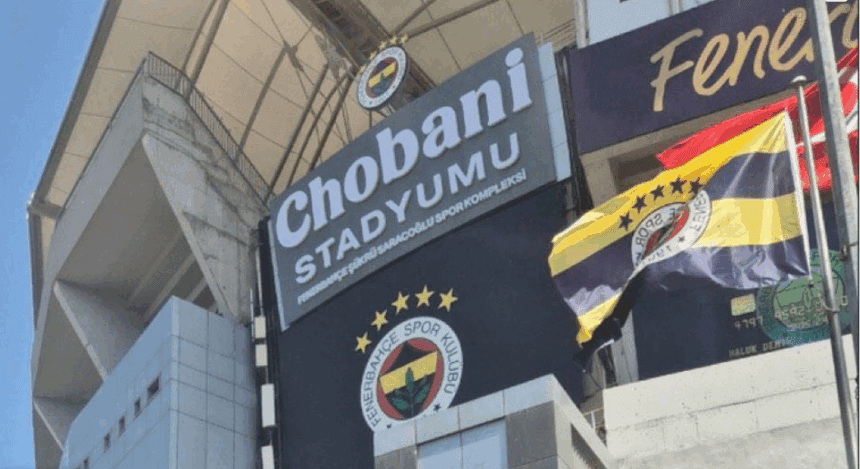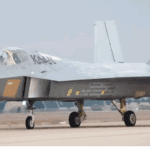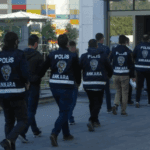Fenerbahçe Sports Club, a historic institution in Turkish football with a deeply rooted fan base and national cultural significance, has come under fire following its recent stadium naming rights deal with U.S.-based yogurt company Chobani. The backlash stems not from the commercial terms of the agreement, but from the ethnic background of Chobani’s founder—Kurdish-American entrepreneur Hamdi Ulukaya.
Earlier this week, new signage reading “Chobani Stadium Fenerbahçe Şükrü Saracoğlu Sports Complex” was installed at the club’s iconic stadium in Istanbul, marking the official start of a five-year partnership slated to begin with the 2025–2026 football season. The agreement, valued at €10 million annually with an option for a five-year extension, was confirmed by Turkey’s state-run Anadolu Agency.
While such naming rights deals are increasingly common in global sports, Fenerbahçe’s decision to partner with a brand associated with a politically charged identity has ignited a wave of criticism—particularly among Turkey’s nationalist circles. Much of the backlash unfolded on social media, where some users circulated doctored images combining Fenerbahçe’s logo with that of the PKK, the outlawed militant group that has waged a decades-long insurgency against the Turkish state.
Others mocked the company’s name, “Chobani,” incorrectly suggesting linguistic or symbolic ties to “Kobanî,” a Kurdish town in northern Syria that gained international attention in 2014 as the site of a major battle between Kurdish forces and ISIS. For critics, the stadium’s rebranding evoked not just commercial discomfort but deep-seated political and cultural tensions.
Yet the controversy goes beyond name associations. At its core lies a struggle over national identity, memory, and the role of Kurdish figures in Turkish public life. For some, Ulukaya’s success story—a Kurdish shepherd’s son from Erzincan who became a billionaire in the United States—challenges long-standing narratives about who gets to represent Turkish excellence on the global stage.
Born in 1972 to a family from the Şavak tribe, Ulukaya grew up along the banks of the Euphrates River, raising livestock and making cheese in a pastoral lifestyle deeply connected to his Kurdish heritage. After studying political science in Ankara, he emigrated to the U.S. in 1994, eventually founding Chobani in 2005 by acquiring a shuttered yogurt plant in upstate New York. Within a decade, the company became a dominant force in the American dairy market, pioneering the rise of Greek-style strained yogurt and generating over $1 billion in annual sales by 2011.
While celebrated abroad for his immigrant success and philanthropy—especially his donations to refugee causes—Ulukaya has faced suspicion at home. In 2014, Turkish media reported that he donated $2 million to humanitarian efforts in Kobanî during ISIS’s siege of the town. “We will either watch the massacre there or do something to save those people,” he reportedly said at the time. Though his remarks were widely praised by international observers, they reinforced negative perceptions among Turkish nationalists who see any reference to Kurdish autonomy or symbolism as subversive.
Complicating matters is the timing. Fenerbahçe’s partnership with Chobani comes as Turkey appears to be tiptoeing toward a possible revival of the Kurdish peace process. On July 11, the PKK held a symbolic ceremony marking the beginning of its disarmament—an event that many interpreted as the first tangible step toward ending a 40-year conflict that has claimed over 40,000 lives. While Ankara has not formally acknowledged negotiations, the government has adopted a noticeably softer tone toward the issue in recent months.
In this context, Fenerbahçe’s corporate decision inadvertently touched a national nerve. The club has traditionally styled itself as a symbol of Turkish republican values—its stadium bearing the name of Şükrü Saracoğlu, a mid-20th century Turkish prime minister and president known for his nationalist policies and close ties to the state establishment. The juxtaposition of Saracoğlu’s legacy with the name of a Kurdish-American businessman has unsettled those who see the move as a symbolic contradiction.
However, others argue that the reaction is disproportionate. Ulukaya, despite his background and political views, has no operational ties to Kurdish political movements. Chobani does not operate in Turkey or Europe, and the agreement with Fenerbahçe is purely commercial. Supporters of the deal have pointed out that Turkey, like much of the global sports industry, must increasingly rely on international sponsorships to remain competitive—and that this partnership could open new doors for Turkish clubs on the global stage.
The controversy also speaks to a broader cultural rift in Turkey, where sports, politics, and identity are increasingly intertwined. Clubs like Fenerbahçe, Galatasaray, and Beşiktaş are not merely athletic organizations—they are social institutions with millions of supporters, each carrying political and cultural baggage. As such, any change in naming, branding, or affiliation is bound to generate debate.
Fenerbahçe has so far declined to directly respond to the criticism but emphasized the financial and strategic benefits of the Chobani deal. For now, the club appears determined to proceed with the agreement, betting that the long-term gains of international visibility and stable revenue will outweigh the short-term turbulence.



